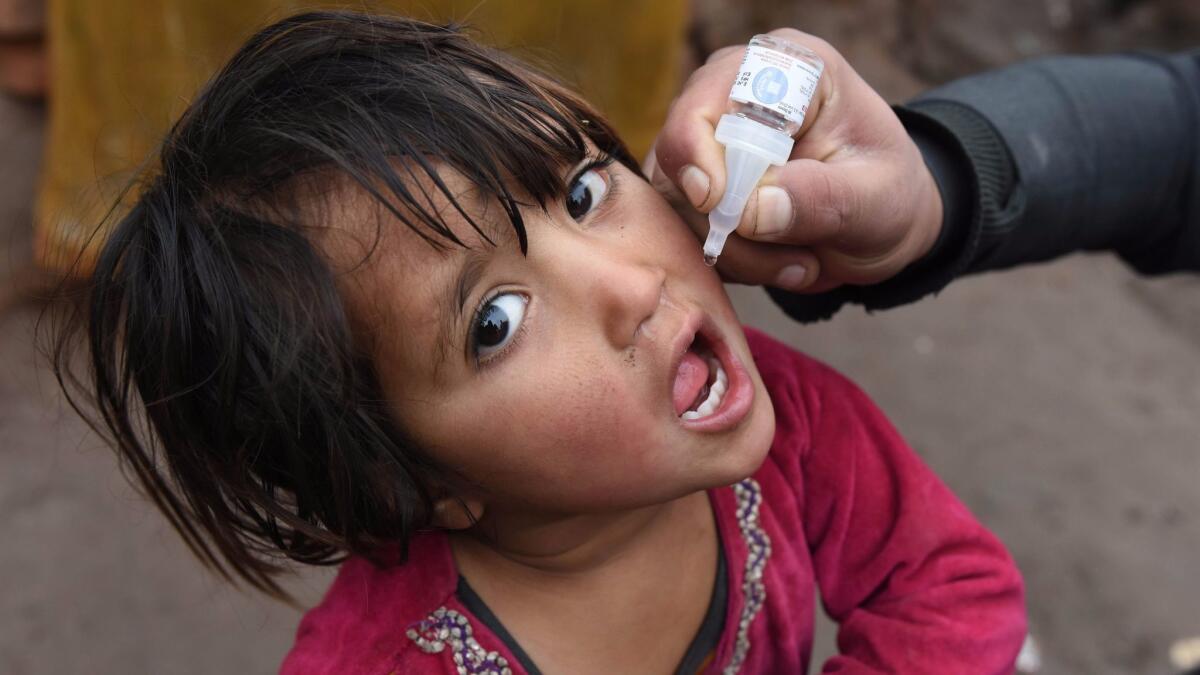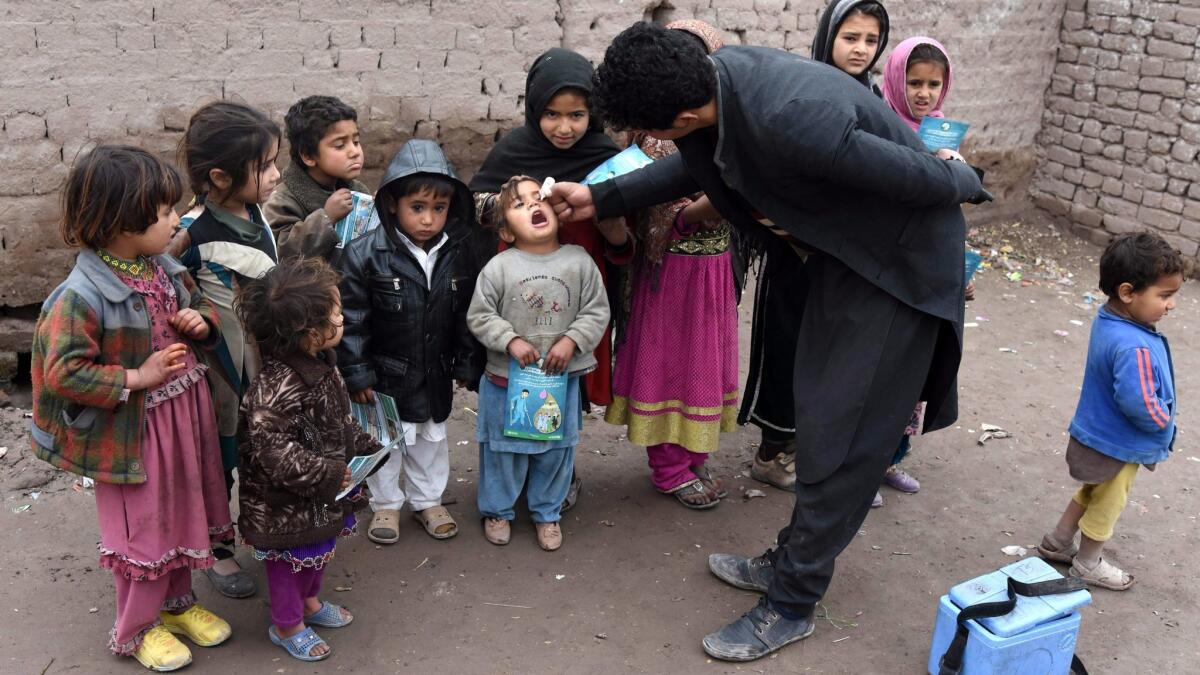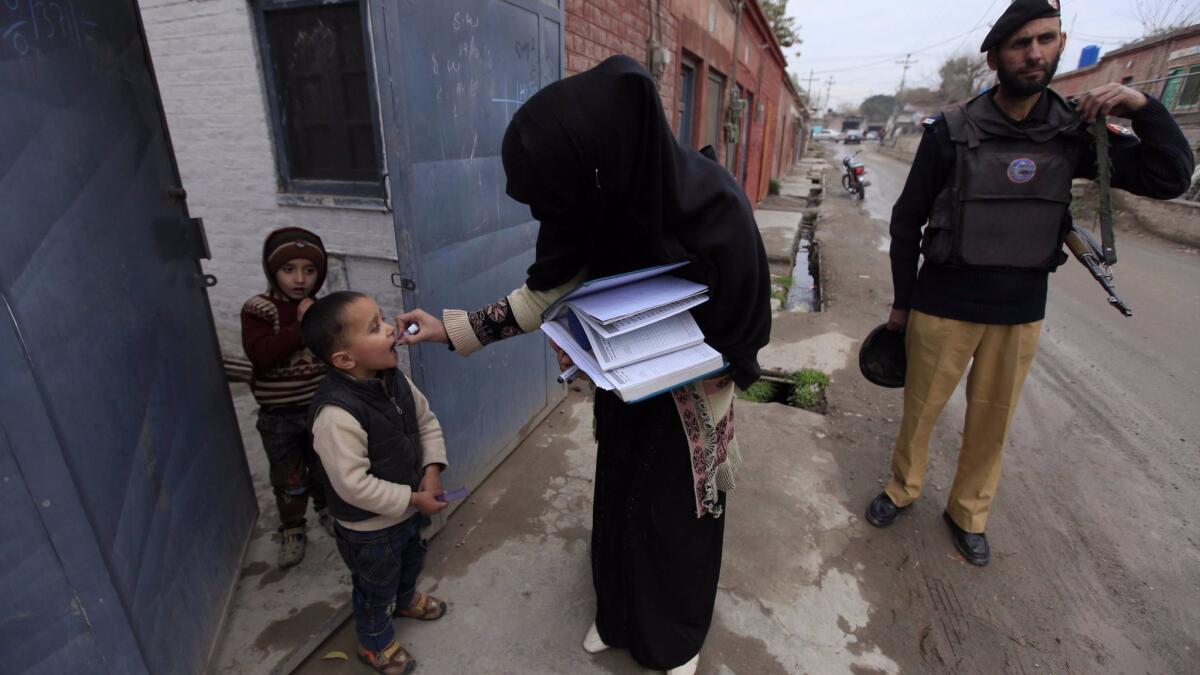Op-Ed: One way the Islamic world is tackling its problem with childhood vaccines

- Share via
Around the world, some 1.5 million children die each year from vaccine-preventable diseases.
The problem? Most vaccines are imported from developed nations, making them unaffordable for those who need them most in developing nations. And vaccine shortages that threaten polio eradication goals in Nigeria, Pakistan and Afghanistan — the three countries where the disease is still endemic — only compound the problem.
It’s a concern the Organization of Islamic Cooperation, or OIC, which represents 57 predominately developing Muslim nations, is trying to resolve by helping its member attain self-reliance in the production and supply of essential vaccines.
However, with the Islamic world’s limited-production capacity and medical research capabilities, addressing that deficit has required innovative collaborations between the public, private and nongovernment sectors.
This resulted in the 2014 creation by the OIC of the Vaccine Manufacturers Group, a unique collaboration of the public and private sectors.
The group, a network of major vaccine producers across OIC member states, enables producers to pool resources, know-how and research. Its long-term goal is ambitious: to jointly develop affordable vaccines across the Islamic world.
But this requires more than simply working with private companies. It also involves reaching out to civil society, especially religious leaders, to help overcome misconceptions about the religious and ethical legitimacy of vaccines in certain parts of the Islamic world — for instance, Pakistan and Afghanistan.

As part of these efforts, the OIC has helped to establish the Islamic Advisory Group for Polio Eradication. It is a collaborative effort that includes the Islamic Development Bank and Islamic religious institutions such as Azhar Academy and the International Islamic Fiqh Academy, a body of international Islamic clerics who promote the application of Islamic jurisprudence to modern-day challenges.
The effort of the advisory group appears to be reaping dividends. Polio cases have decreased considerably in Pakistan, falling from 54 cases in 2015 to 13 in 2016. In Afghanistan, the number of polio cases dropped from 20 in 2015 to six as of September 2016.
This success has prompted the polio eradication group to respond to public demands to expand its activities to include other issues that are important to the health of mothers and their children.
The use of this approach to address the Islamic world’s vaccine deficit is proving to be a useful model for making progress in developing nations. It enables unparalleled coordination among governments, civil society and the private sector in solving problems that no one party could tackle alone. Given the typical shortages experienced by governments in the developing world, these types of partnerships are not just helpful, but necessary.

That view is supported by the United Nation’s 2030 Agenda for Sustainable Development, in which such partnerships play an integral role. These also are a central feature of notable U.N. initiatives, such as Every Woman Every Child, a global movement to address the major health challenges facing women and children; the Global Polio Eradication Initiative and the Global Alliance for Vaccines and Immunization, which is also an advisory partner of the Vaccine Manufacturers Group.
In that spirit of collaboration and innovation, and the pursuit of achieving self-sufficiency, the OIC has suggested other creative steps, such as incorporating a company with shared ownership across OIC member states to produce vaccines at affordable prices.
Such a motion represents an evolution in thinking about the roles that inter-governmental bodies, governments and the private sector can play in fostering the progress of developing nations. If acted upon, the proposal would stand as a milestone of cooperation within the Islamic world.
It is also why the OIC’s Vaccine Manufacturers Group could be a model for other future development approaches the organization might undertake in the Islamic world.
Let’s hope it is. After all, it is precisely that ability to unite governments, civil society and private enterprise behind one common purpose and program of action that is bringing the Islamic world closer to a vital goal: easy access to affordable, potentially lifesaving vaccines.
Muhammad Naeem Khan is assistant secretary general of the Organization of Islamic Cooperation, the world’s second-largest intergovernmental body after the United Nations. He also the former Pakistan ambassador to Saudi Arabia.
More to Read
Sign up for Essential California
The most important California stories and recommendations in your inbox every morning.
You may occasionally receive promotional content from the Los Angeles Times.













